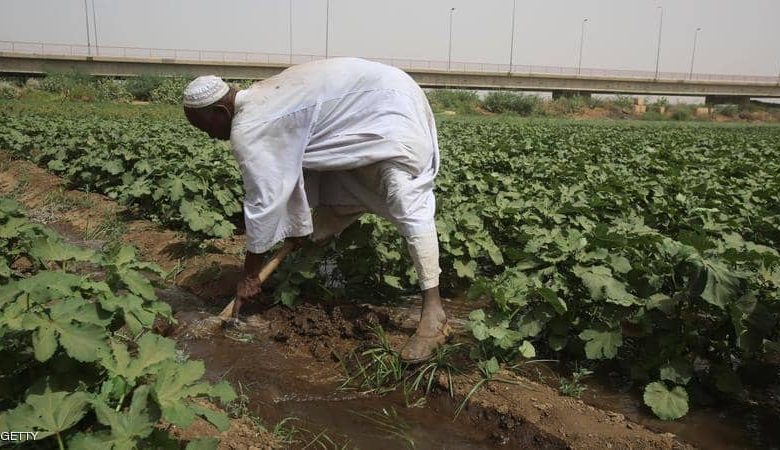Agricultural Reconstruction, Private Sector Involved

Reported by Nahid Oshi
The war, which broke out on the 15th of April last year and was approaching ten months, wiped out everything green and dry and destroyed the harvest of years of hard work in advancing production and the agricultural sector is among the sectors that were destroyed and most in need of reconstruction and a renaissance of agricultural projects again, according to the agricultural expert, Engineer Al-Tayeb Ahmed Hassan.
The agricultural sector is more vibrant and dynamic, as well as its close connection to the energy, transport, industry, trade and communications sectors.
In statement to Al-Ahdath, he said that the agricultural sector including both animal and plant sub-sectors contains several different areas that varied in their impact by the war and the degree of damage that occurred as a result of the war. For example, the field of Gum Arabic was greatly affected in all its stages, as a very large part of the Gum Arabic belt falls within the scope of the war, which hinders its collection, sorting and packaging.
Its transportation and export is an important global input to many industries.
Intentional sabotage
He pointed to the deliberate sabotage of the sugar sector and the looting and destruction of a number of sugar factories, as Al-Junaid and West Sinnar (are now out of production) as well.
The forestry and horticultural sector was indirectly affected by the disruption of transportation and the lack of safety and security.
The irrigated projects (Gezira and Al-Rahad) were also exposed to all kinds of sabotage, damage, and lack of security and safety.
Reconstruction
He stressed the ability of the private sector to rebuild the agricultural sector, noting that the private sector manages and finances about 90% of the rain-fed sector.
It contributes to providing most of the irrigated sector inputs, including equipment, machinery, seeds, fertilizers, pesticides, and packaging and marketing materials.
Addressing the food crisis
Engineer Hassan stressed the importance of the agricultural sector in Sudan, especially since the whole world is considering Sudan as the 5th country (Canada, Brazil, South Africa, Australia, Sudan) to solve the world’s food problem during the next five decades, given what is known about the natural resources in Sudan.
Therefore, the private sector will play a pioneering and leadership role in rebuilding the agricultural sector with its capabilities, potentials and local, regional and international relations.
Only through the international organizations concerned with the matter must there be a strong political will, practical scientific management, and funding, as well as optimal exploitation of common relationships and interests according to an integrated understanding with everyone for common interests.
He said after rebuilding, the private sector can establish all service companies that serve the agricultural sector and giant engineering companies, seed production companies, aerial spraying companies, transport companies, agricultural processing companies, and agricultural marketing companies.
Agriculture components
Engineer Mustafa Al-Lazim points out that most of the agricultural components are available. He said the land is available and the water, whether rain or irrigation, is available. We have farmers with long experience, administrators and agricultural technicians with high efficiency, technological means of transportation with a long history, and researchers who have the ability to provide new things. He added in his statement to (Al-Ahdath): What we really need is marketing and financing. Marketing takes precedence over financing because currently, despite the lack of production, prices do not help to continue agriculture, even for small-scale farmers



